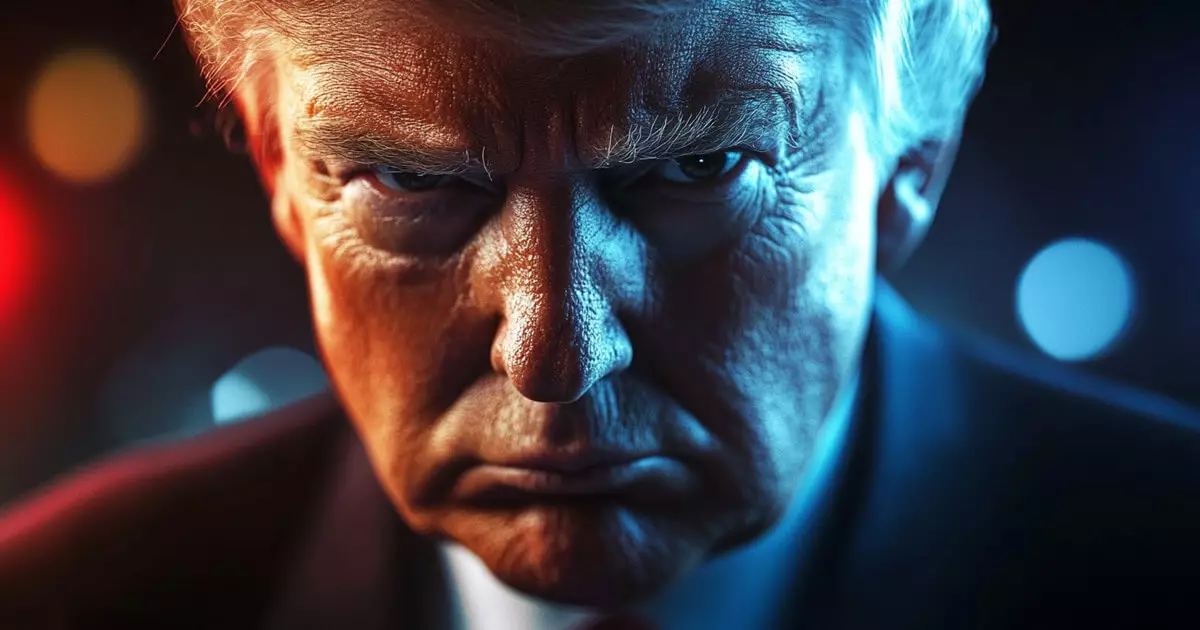In the ever-changing landscape of American finance, the role of the Securities and Exchange Commission (SEC) chair stands as a beacon of accountability and regulation. As the Trump administration transitions, one name has emerged as a potential frontrunner: Paul Atkins. However, sources indicate that Atkins is wavering in his interest for the position, primarily due to concerns about the SEC’s current operational state. This hesitation sheds light on the complexities facing anyone stepping into this high-profile role.
Atkins, who previously served as an SEC commissioner between 2002 and 2008, understands the gravity of the responsibilities attached to the position. The agency is grappling with criticisms regarding mismanagement and inefficiencies, issues that have crystallized during Gary Gensler’s tenure. With industry shifts towards digital assets and cryptocurrencies, the urgency for adept leadership has intensified, yet Atkins reportedly finds the prospect of leading such a beleaguered agency less than appealing.
The Implications of Acceptance
Should Atkins decide to accept the SEC chair role, he would need to relinquish his interests in Patomak Global Partners, his consulting firm. This potential conflict looms large in his decision-making process. Insiders suggest that Atkins is weighing the viability of stepping down from his firm against the challenges he would face at the SEC. The need for strategic foresight in his professional landscape is crucial. The landscape of finance is filled with nuances, and adapting to this demanding role demands a level of commitment that might conflict with his existing obligations.
Chris Giancarlo, former chair of the Commodity Futures Trading Commission (CFTC), stands firmly behind Atkins, positing that his leadership could restore not only the SEC’s credibility but also its operational effectiveness. With an acute awareness of the evolving issues regarding digital assets, Giancarlo articulates a vision for reform that Atkins could actualize if he accepts the leadership bill.
Exploring Alternative Candidates
Nevertheless, with Atkins’ hesitations hanging in the balance, the question remains: who might fill the SEC chair void if he declines? Trump may pivot to other benchmarks of experience within the financial regulatory sphere. Names such as current SEC Commissioner Mark Uyeda, former CFTC Chair Heath Tarbert, and Robert Stebbins, a partner at the law firm Willkie Farr & Gallagher LLP, are generating interest. Each candidate brings a unique perspective to the regulatory table, underscoring the diverse challenges the SEC faces.
In a time where the investment landscape is rapidly transforming, the eventual selection of the SEC chair will significantly influence how the agency addresses emerging market trends, consumer protections, and technological advancements. The future leader will not only require a robust understanding of finance but also the political acumen to navigate the complexities of regulation in an ever-evolving digital economy.
While Paul Atkins remains a prominent name in conversations surrounding the SEC chair position, his uncertainty reveals the daunting nature of the role. As the Trump administration deliberates, the financial community watches closely, bracing for the profound implications that the next SEC chair’s decisions will carry for regulatory practices and market dynamics.
















Leave a Reply